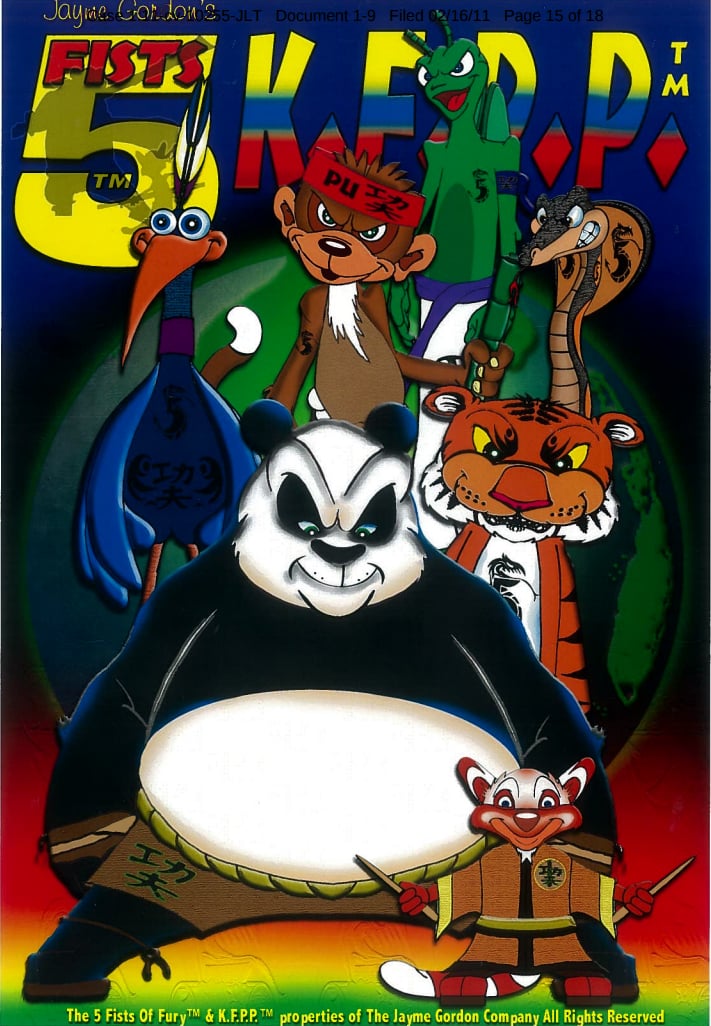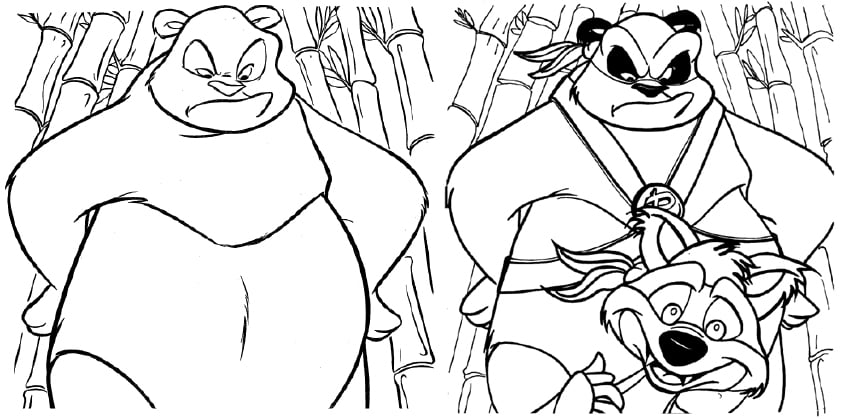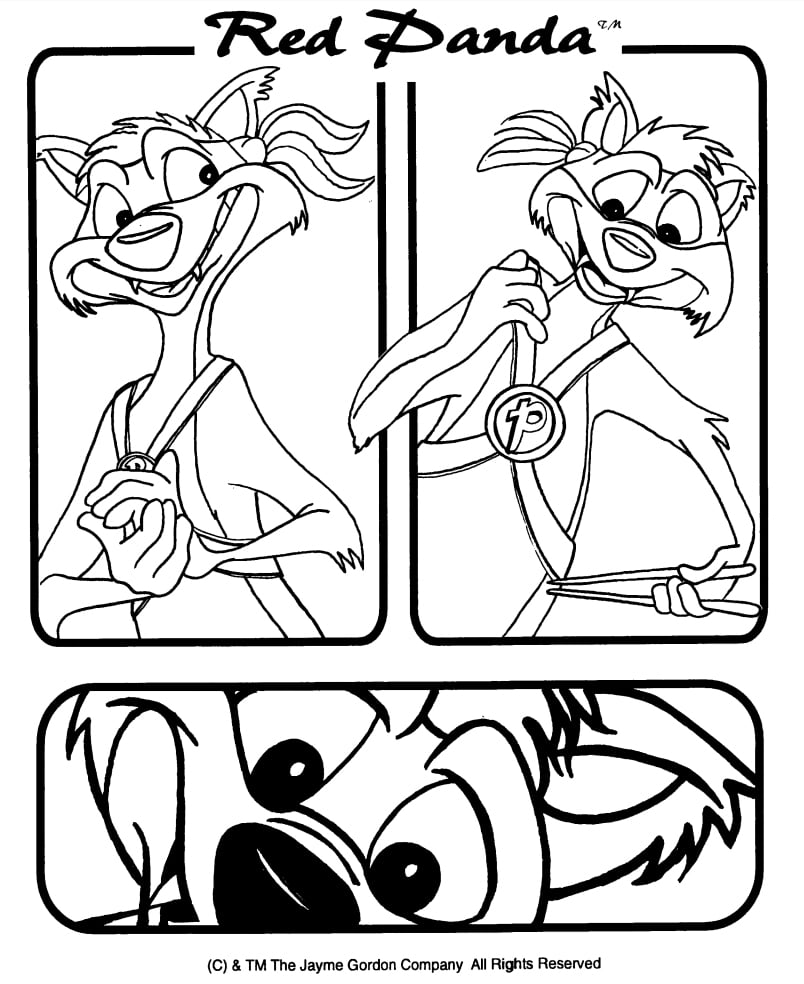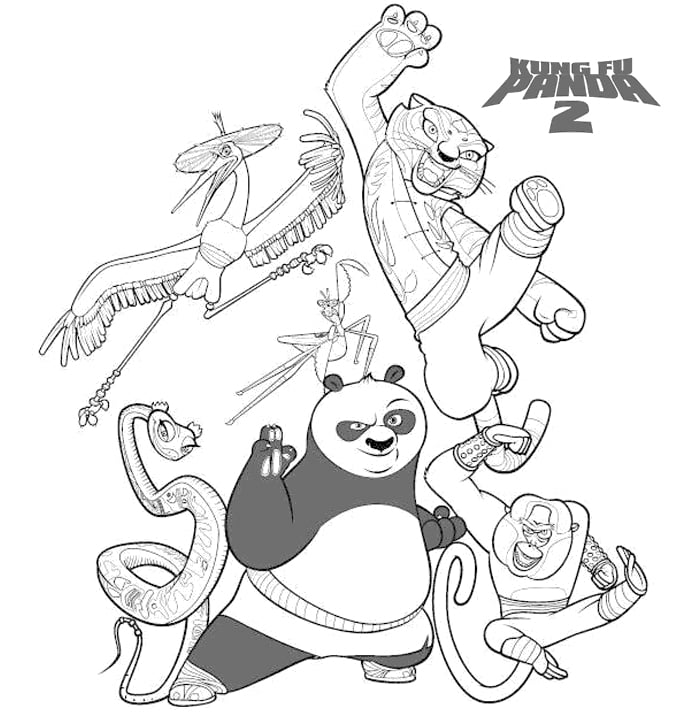Law & Politics
Failed ‘Kung Fu Panda’ Copyright Lawsuit Lands Artist in Court
He allegedly traced pages from a coloring book.

He allegedly traced pages from a coloring book.

Sarah Cascone

Jayme Gordon claimed that DreamWorks animation studio had stolen the idea for its hit Kung Fu Panda film series from him. Now, the Randolph, Massachusetts resident has been charged in US District Court in Boston with wire fraud and perjury, under accusations that he falsified his claims in order to extract a multi-million dollar settlement from the film company.
If convicted, Gordon, 51, could up to five years on the perjury charges, and up to 20 years for wire fraud. Both convictions could also include fines of up to $250,000.
Gordon filed the intellectual property suit in 2011, asking for a $12 million settlement, an offer that DreamWorks promptly rejected. The case was dismissed in 2013, reportedly after the defense noticed that several of the drawings Gordon claimed to have created in 1994 and 1994 were traced from a coloring book on The Lion King published in 1996.
At that point, Dreamworks had already spent $3 million on its legal defense.

A “Kung Fu Panda Power” drawing by Jayme Gordon.
Image: Jayme Gordon.
The popular Jack Black-starring franchise continues with Kung Fu Panda 3, which is set to hit theaters January 29, 2016.
“Mr Gordon went to great lengths to orchestrate and maintain this fraudulent scheme, trying to take credit for ideas he did not come up with,” Boston FBI agent Harold Shaw said in a statement. “This case demonstrates the FBI’s commitment to root out individuals who try to steal ideas and information from hard-working American companies.”

A drawing from a 1996 Disney coloring book and Jayme Gordon’s drawing.
Image: courtesy the US Department of Justice.
The audacious artist stands accused of having altered and backdated drawings so that they appeared be to characters similar to those in Kung Fu Panda, after he saw a trailer for the animated film in 2008. He allegedly renamed his original “Panda Power” character “Kung Fu Panda Power” in order to make his work more similar to the DreamWorks version. Investigators maintain that Gordon lied throughout his deposition, and destroyed computer evidence.
In a document submitted as evidence in the first case, a character profile for “Kid Panda,” who bears a striking similarity to the film’s Po, voiced by Black, notes his “enormous 300-pound size,” “ancient Chinese fighting skills,” and “sweet-tooth for bamboo.” Gordon also included “Red Panda,” a small sidekick who look significantly like Kung Fu Panda‘s Master Shifu (Dustin Hoffman).

A “Kung Fu Panda Power” drawing by Jayme Gordon.
Image: Jayme Gordon.
Gordon filed a number of sketches of his “Panda Power” characters with the US Copyright Office in 2011, claiming that the drawings dated to 1994. Other drawings include a number of other fighting animals named “the five fists of fury,” which appear to be a nod to the film’s “Furious Five.”
“Our intellectual property laws are designed to protect creative artists, not defraud them,” said US Attorney Carmen M. Ortiz in a statement. “The misuse of civil litigation as part of a fraud scheme, and lying under oath, as alleged in this case, warp our federal judicial system and must be addressed with appropriate criminal sanctions.”
Gordon is to appear in court Monday.

A coloring book image for Kung Fu Panda.
Photo: Dreamworks.